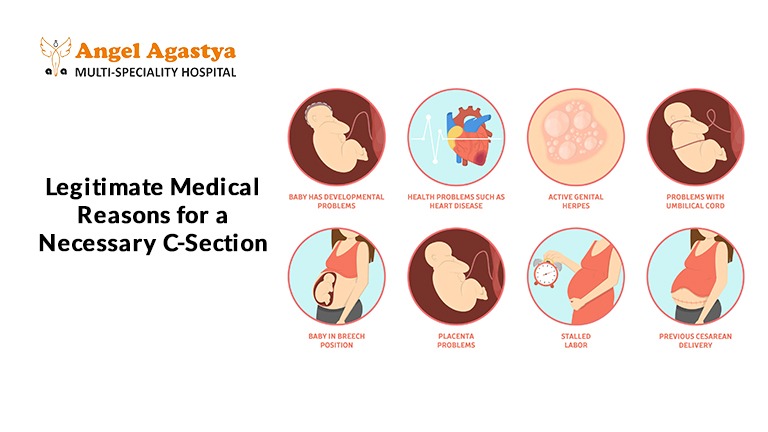The anticipation surrounding childbirth is often intertwined with a deep hope for a natural, vaginal delivery. For many expectant mothers, this vision represents the culmination of pregnancy, a powerful testament to the body’s innate ability to bring forth new life.

While Cesarean sections (C-sections) undeniably play a critical and life-saving role in specific medical emergencies, a significant concern for many pregnant individuals is the unsettling feeling of being pressured into a surgical birth without a clear and compelling medical necessity, the fear of a doctor enacting a forced c section.
How to Know If Your Doctor Forced C Section Unnecessarily?
The anxiety is entirely valid. Every pregnant person deserves to feel empowered, informed, and in control of their birthing experience. Understanding your fundamental rights, recognizing potential red flags that might indicate an unnecessary recommendation for a forced c section, and knowing how to effectively advocate for your preferences are crucial steps in navigating the often-complex landscape of labor and delivery.

This blog aims to equip expectant mothers with the knowledge to discern when a C-section recommendation aligns with genuine medical necessity and when it might be prudent to seek further clarification, explore alternatives, or even consider a second opinion, especially when the specter of a forced c section looms.
Your Right to Informed Consent in Childbirth
In childbirth, your right to informed consent is a cornerstone of respectful care. It means you have the legal and ethical right to understand and decide what happens to your body during labor and delivery. Informed consent isn’t just signing a form it’s an open, ongoing conversation with your healthcare provider.
You deserve clear, unbiased information about all birth options like natural labor, pain relief, interventions, or even a C-section. If a forced C section is being considered, it must be explained with empathy and clarity. You should fully understand why it’s recommended, the risks involved, and the alternatives.
No one should ever feel pressured into a decision. Your voice matters. True informed consent respects your values and choices while keeping you and your baby safe. A forced C section should never replace communication or undermine your autonomy. You have the right to be informed, respected, and involved in every decision.
Legitimate Medical Reasons for a Necessary C-Section
While concerns around a forced C section are valid, it’s equally important to understand that Cesarean births can be medically necessary and life-saving in specific situations. Here are some clear, evidence-based reasons:

- Fetal Distress: When the baby shows signs of not tolerating labor such as abnormal heart rate patterns suggesting oxygen deprivation a timely C-section may prevent serious complications.
- Placenta Previa: A condition where the placenta covers the cervix, making vaginal delivery highly dangerous due to the risk of heavy bleeding.
- Cephalopelvic Disproportion (CPD): When the baby’s head is too large to pass through the mother’s pelvis, making vaginal delivery unsafe or impossible.
- Malpresentation: Babies in a breech (feet or buttocks first) or transverse (sideways) position, especially when external cephalic version (ECV) fails or is unsafe, often require surgical delivery.
- Uterine Rupture or High Risk of Rupture: A rare but life-threatening situation, particularly in women with previous uterine surgeries.
- Severe Maternal Medical Conditions: Conditions like certain heart diseases or an active genital herpes infection can make vaginal delivery too risky for mother or baby.
Recognizing these genuine medical reasons helps differentiate a necessary, informed C-section from a forced C section, where consent and shared decision-making are missing.
Red Flags: Recognizing Potential Signs of an Unnecessary “Forced C Section”
While labor is intense and trusting your medical team is important, being aware of red flags can help you avoid an unnecessary forced C section. Here are key signs to watch for:

- Vague or Unclear Explanations: If the reason for the C-section is delivered in rushed or confusing medical language without proper explanation, it’s a red flag. You deserve a clear, empathetic, and easy-to-understand rationale.
- Premature Recommendation: First-time labors often take longer. Be cautious if a C-section is recommended early on without enough time for labor to naturally progress according to standard medical guidelines.
- Lack of Explored Alternatives: Were other options like walking, position changes, membrane rupture, or low-dose Pitocin discussed or tried? If not, you may be facing an unnecessary forced C section.
- Convenience or Scheduling Concerns: If the timing of the C-section seems more about hospital or doctor convenience than an urgent medical need, this could indicate pressure rather than necessity.
- Feeling Pressured or Dismissed: If you’re being rushed, ignored, or made to feel uncomfortable for asking questions or wanting more time, that’s a serious red flag. Your concerns are valid.
- Discouragement of Second Opinion: A doctor who resists your request for a second opinion may not be prioritizing your autonomy. Seeking another perspective is your right.
- Over-Reliance on “Failure to Progress”: Be cautious if this term is used vaguely. Ask for specifics like dilation progress, contraction strength, and labor phase. A forced C section can sometimes be masked behind this unclear diagnosis.
- Ignoring Your Birth Plan: If your well-thought-out birth plan is dismissed without medical justification, it shows a lack of respect for your choices.
- Limited Support for Vaginal Birth: If there’s little effort to support natural birth through nursing care or continuous monitoring, you may be steered unnecessarily toward a forced C section.
Being informed and asking questions empowers you to protect your rights, preferences, and your baby’s well-being.
Empowering Yourself: Taking Action Against a Potential “Forced C Section”
Being actively involved in your childbirth journey is essential, especially when navigating the possibility of a forced C section. Here are practical steps to help you stay informed, confident, and in control:
- Educate Yourself Thoroughly: Attend childbirth education classes and learn about labor stages, potential complications, and the pros and cons of both vaginal and Cesarean births. Knowledge helps you make informed decisions.
- Create and Discuss a Detailed Birth Plan: Early in your pregnancy, outline your preferences regarding labor, delivery, and postpartum care. Share and discuss this plan with your healthcare provider and the hospital staff to set clear expectations.
- Ask Direct and Probing Questions: Use the BRAIN tool : Benefits, Risks, Alternatives, Intuition, and doing Nothing to evaluate any recommendation, especially if a forced C section is being discussed. Never hesitate to ask for clarity.
- Seek a Second Opinion: If something feels off, or if you’re being pressured into a decision, consult another experienced obstetrician. A second opinion can provide reassurance and fresh insight.
- Consider Continuous Labor Support: Hiring a doula can be transformative. Doulas offer physical comfort, emotional encouragement, and help advocate for your birth preferences, which may reduce the risk of an unnecessary forced C section.
- Trust Your Instincts and Speak Up: Your intuition is powerful. If something feels wrong, voice your concerns clearly and respectfully. Your input is vital.
- Ensure a Supportive Presence: Have your partner, a friend, or a family member with you during labor. They can advocate on your behalf, support your decisions, and help you stay calm and empowered.
Taking these proactive steps can help you feel more in control and reduce the likelihood of a forced C section that does not align with your wishes or medical needs.
Angel Agastya Hospital (Delhi)
At Angel Agastya in Delhi, we are committed to empowering expectant mothers with clear, evidence-based knowledge and supporting their right to make informed choices about childbirth. Our approach emphasizes minimizing unnecessary medical interventions, including Cesarean sections, while always prioritizing the safety and well-being of both mother and baby.
Our experienced obstetricians offer compassionate, personalized care, encouraging natural physiological births whenever safely possible. We ensure open, respectful communication, taking time to explain all medical options including when a C-section may be necessary so you can make confident, informed decisions.
At Angel Agastya’s advanced gynecology department, your comfort, preferences, and autonomy are central to the birthing experience. We are here to support you through every step of your unique childbirth journey.
Conclusion
The arrival of your baby is a deeply personal and life-changing event. While Cesarean can be absolutely necessary and life-saving in specific medical situations, it is essential to recognize that every expectant mother has the right to be fully informed and involved in all decisions about her care. A forced C section one performed without proper explanation or genuine consent undermines this right and can leave lasting emotional and physical impacts.
Empower yourself by educating yourself about the stages of labor, common interventions, and your medical rights. Clearly express your preferences in a detailed birth plan, and discuss it early with your care team. Don’t hesitate to ask direct questions about any recommendation, especially a C-section, and use tools like the BRAIN acronym (Benefits, Risks, Alternatives, Intuition, and doing Nothing) to evaluate your options. If doubts arise, seek a second opinion from another qualified provider.
Having continuous emotional support whether from a partner, family member, or doula can also make a significant difference in ensuring your voice is heard. Trust your instincts. Your body, your baby, and your voice matter.
A positive birth experience is built on mutual respect, transparency, and collaboration not pressure or fear of a forced C section, but empowered and informed decision-making.
FAQ’s
1. What does “Forced C Section” mean in the context of childbirth?
“Forced C section” refers to the feeling of being pressured or coerced into having a Cesarean section without a clear, compelling medical necessity and without fully informed consent.
2. What are my rights as a pregnant person regarding the type of birth I want?
You have the right to informed consent, meaning you should receive clear information about all options (vaginal birth, C-section), their risks and benefits, and the reasons behind any recommendation. The decision should ideally be collaborative.
3. What are some valid medical reasons for needing a C-section?
Valid reasons include fetal distress, placenta previa, cephalopelvic disproportion, malpresentation, uterine rupture/risk, and certain serious maternal medical conditions.
4. What are some potential red flags that a C-section recommendation might be unnecessary?
Red flags include vague explanations, rushing the process, lack of explored alternatives, convenience-based reasons, feeling pressured, discouragement of second opinions, and ignoring your birth plan.
5. What should I do if I feel my doctor is pushing for a C-section without a clear medical reason?
Ask detailed questions using the BRAIN framework, express your concerns clearly, seek a second opinion from another obstetrician, and consider continuous labor support like a doula.
6. Can I refuse a C-section if I don’t believe it’s medically necessary?
While doctors prioritize safety, you have the right to refuse medical treatment. However, understand the potential risks involved and discuss your concerns thoroughly with your medical team.
7. How can I prepare to advocate for my birth preferences?
Educate yourself about labor and delivery, create a detailed birth plan, discuss it with your doctor early, and have a supportive partner or advocate present during labor.
8. Where can I get a second opinion on a C-section recommendation in Delhi?
You can seek a second opinion from another experienced obstetrician at a different hospital or clinic in Delhi. Consider consulting with doctors at reputable hospitals in the area.
9. How does Angel Agastya Hospital in Delhi approach C-section decisions?
Angel Agastya Hospital emphasizes informed consent, provides personalized care, supports normal deliveries when safe, and ensures clear communication about the indications for any recommended procedure, including C-sections.
10. What is the importance of trust in the doctor-patient relationship during childbirth?
While trust is crucial, it’s also important to be informed and advocate for your preferences. Don’t hesitate to ask questions and seek clarification to ensure you feel comfortable and confident in the decisions being made.

